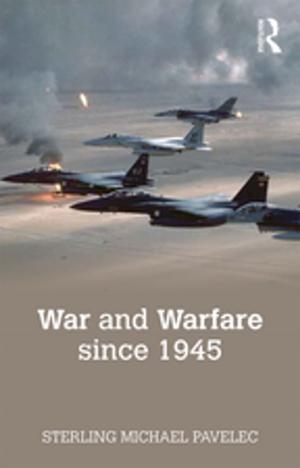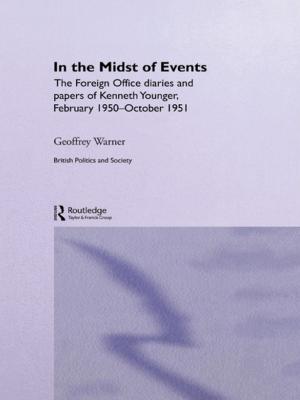| Author: | Dennis Haslop | ISBN: | 9781351264181 |
| Publisher: | Taylor and Francis | Publication: | January 3, 2018 |
| Imprint: | Routledge | Language: | English |
| Author: | Dennis Haslop |
| ISBN: | 9781351264181 |
| Publisher: | Taylor and Francis |
| Publication: | January 3, 2018 |
| Imprint: | Routledge |
| Language: | English |
This book examines the British and German approach to naval air power, describing the creation and development of the two naval air service organizations and doctrine.
This work provides new insights as to how two naval air services were influenced by internal and political interventions, and how each was integrated into the organizational structures of the Royal Navy and the Kaiserlichemarine (KM). Both the Admiralty and the KM made substantial alterations to their organizations and doctrine in the process. Principal air doctrines employed are examined chronologically and the application of operational doctrine is described. While they adopted similar air doctrines, there were differences in operational doctrine, which they addressed according to their different requirements. This book is a comparative study about the development of organization and air power doctrine in the RNAS (Royal Naval Air Service) and the IGNAS (Imperial German Naval Air Service). It investigates public and political interventions and early concepts of air power, placing into context the factors which contributed to how naval theorists came to think about the best means of controlling its working medium, air space. Ultimately, it examines the similarities, and differences, between the RNAS and IGNAS understanding of naval air power, within the broader strategic and theoretical framework of their parent organizations.
This book will be of great interest to students of air power, naval power, military history, strategic studies and IR in general.
This book examines the British and German approach to naval air power, describing the creation and development of the two naval air service organizations and doctrine.
This work provides new insights as to how two naval air services were influenced by internal and political interventions, and how each was integrated into the organizational structures of the Royal Navy and the Kaiserlichemarine (KM). Both the Admiralty and the KM made substantial alterations to their organizations and doctrine in the process. Principal air doctrines employed are examined chronologically and the application of operational doctrine is described. While they adopted similar air doctrines, there were differences in operational doctrine, which they addressed according to their different requirements. This book is a comparative study about the development of organization and air power doctrine in the RNAS (Royal Naval Air Service) and the IGNAS (Imperial German Naval Air Service). It investigates public and political interventions and early concepts of air power, placing into context the factors which contributed to how naval theorists came to think about the best means of controlling its working medium, air space. Ultimately, it examines the similarities, and differences, between the RNAS and IGNAS understanding of naval air power, within the broader strategic and theoretical framework of their parent organizations.
This book will be of great interest to students of air power, naval power, military history, strategic studies and IR in general.















